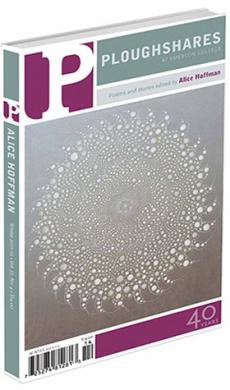Review: The Foremost Good Fortune
When Susan Conley moves to China with her husband Tony and two little boys, she hopes for adventure, and for her family to grow “in that way you hear Americans do when they head east,” but she doesn’t know that cancer will play a role in that growth.
Tony is fluent in Mandarin and thriving in his job, but Conley and the boys have a trickier time sorting out where they belong. “Winds of change are sweeping through Beijing,” and from the desk in her high-rise, Conley can “count a hundred skyscrapers without turning her head,” yet down below, an eight-lane freeway snakes around a small hutong, an ancient Chinese neighborhood where residents still shuffle to public toilets in pajamas.
Everywhere, the old and the new juxtapose, and the first sections of the memoir are dazzling accounts of a China many of us will never see, taking us beyond the red lacquer doors of the Forbidden City and the span of the Great Wall to places known mainly to residents. With Conley, we join in the search for the perfect dumpling in back alley shops. We hold our breath when stone-faced police request the identification she is not carrying as required. We smile at vast apartment complexes named Palm Springs, Champagne Villas, and Park Avenue, and steer clear of Yummy’s, the fast food joint that offers all things chicken: feet, tendons, and heads.
We are also keenly aware of the political. A friend warns that there are four things you can’t talk about in China. “The three T’s and the One F: Tibet, Taiwan, Tiananmen, and Falun Gong.” During Tibetan protests and riots, YouTube fails and televisions tuned to CNN go blank. “It’s an odd thing,” she writes, “to be so close to the mechanisms of war, but to learn about them only in stolen Internet moments.”
Yet we know from the start that Conley will discover she has breast cancer, and artful foreshadowing weaves additional heft through every page. Before the big move, she stopped off in France to teach a long-scheduled writing seminar: “So the boys came to China without me, and I came to China alone, and so far I can’t decide if this will be the lasting metaphor for how I experience this country.”
On an early adventure to the Chinese countryside, she is reminded of road trips she and Tony took early in their marriage, and how life then “felt like something exciting and vaguely infinite.”
She is always conscious of the children, who are funny and honest and provide much of the humor in these pages. “Our move to Beijing has for me become a parenting lesson in how to parcel information: what not to tell, what to tell, and when to tell it.” As she panics inside a dark labyrinth at an art gallery, the anxiety becomes something she can’t describe. “But what’s left is this residue that somehow I’m the odd one out.”
Conley reveals herself to us as a watcher, an examiner, someone who deconstructs life’s many issues and mulls over her decisions. She is also an accomplished poet, and maintains absolute control of her narrative, resulting in a book that is a structural delight. The whole is divided into small scene-sections, and she goes beyond the use of the present tense to write in a kind of immediate tense:
“Those are my two boys up ahead on the horses.”
“Now if I lie very still in my old spool bed, with my left arm propped up on a stack of pillows, I can keep the pain from spreading down my ribs.”
“It takes me a minute to realize we’re talking seriously about how many years I have left to live.”
After a successful surgery and a summer of radiation, the family returns to Beijing, where Conley begins to write the memoir that will help her sort out her relationship to cancer, to China, to her family, and to herself. At first, China feels foreign again, as does her own body. Her own reflections and Tony’s Taoist tendencies steady her: “There’s one big river we’re all swimming in. The trick,” he advises, “is to not fight the current. To let the river carry you.”
Life can turn on a dime. We all, at some level, know that, and the strong draw of this memoir is its clarity and small truths, conveyed in prose that is elegant and exact.
Maryanne O’Hara was the Associate Fiction Editor of Ploughshares for many years. Her stories have been widely published, and a novel about life during the Depression is forthcoming from Viking Penguin in early 2013.

